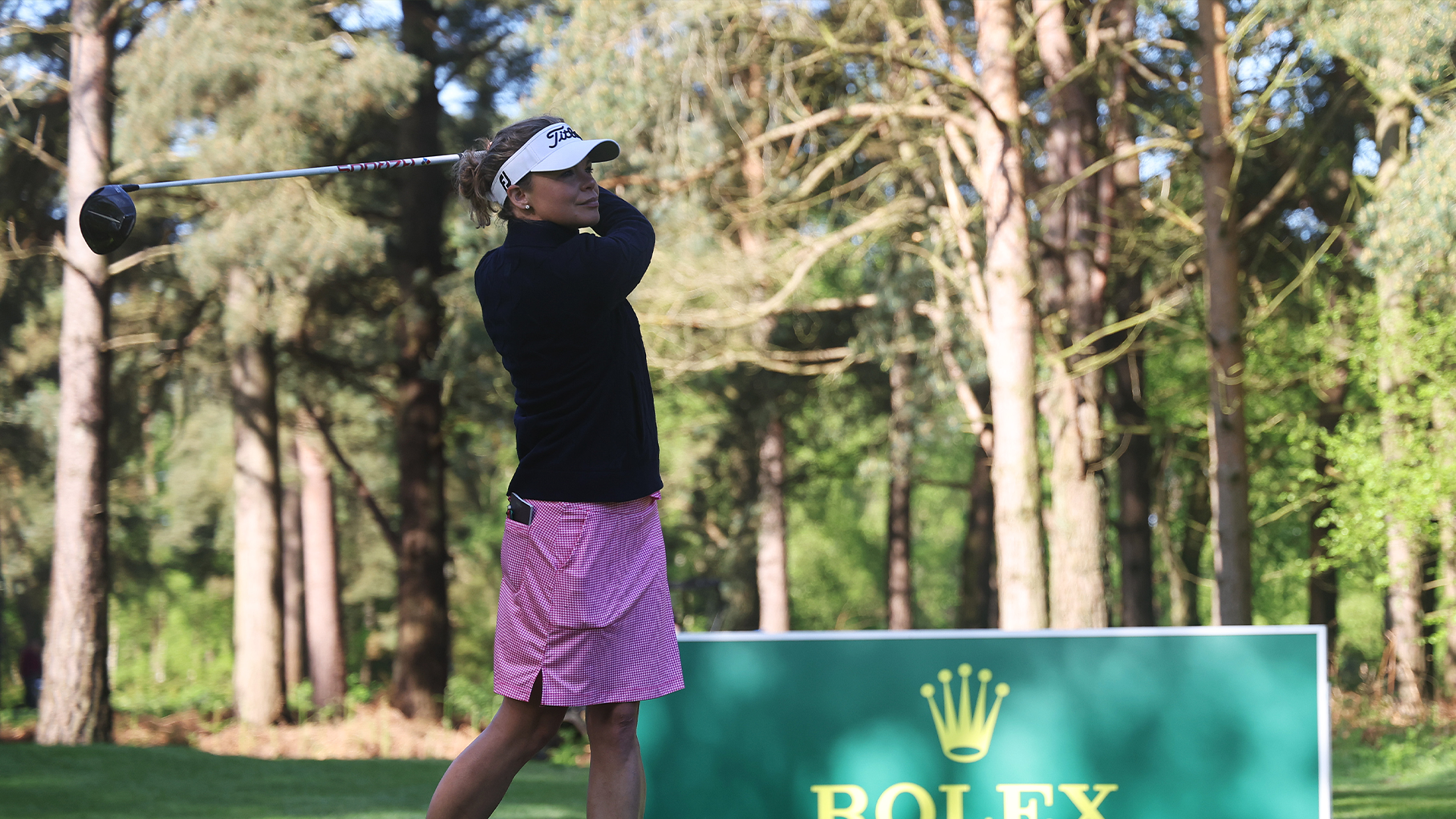Disability Golf
Symposium on Golf for the Disabled can create positive change
11 May 23
3 mins
As the first-ever G4D Open got under way this week featuring leading world golfers with disability, the championship’s venue of Woburn presented a unique opportunity to stage a Symposium on Golf for the Disabled.
A field of 80 male and female players representing 17 countries assembled to compete over the Duchess Course in the championship week, staged by The R&A in partnership with the DP World Tour and supported by EDGA (formerly the European Disabled Golf Association).Alongside what has been one of the most inclusive golf events ever staged, with competitors from nine sport classes across multiple impairment groups, symposium delegates from national golf federations from as far afield as Canada, South Africa and Australia met up together. Development specialists, administrators, academics, volunteers and disability associations were there to listen to and watch presentations on the progress of all things ‘G4D’ (golf for the disabled) in order to make the game as accessible and rewarding as possible for those taking part.
Collaboration
Kevin Barker, Director – Golf Development at The R&A, welcomed delegates from 15 countries. He said, “I’m delighted that during a week of history with the inaugural G4D Open we can meet here to share knowledge, learn, collaborate and find solutions in the rapidly developing area of G4D. “We know that golf can be the most inclusive of sports and can be enjoyed by people irrespective of age, gender, ethnicity, ability, and whether or not they have a disability. These sessions will help us to make strong progress and reach out to more people who could thrive through playing golf.” Growing the sport by encouraging new golfers with disability, treating them with equity at all stages of their journey through the game, and improving current methods, were key themes. In detailed discussions the concept of ‘co-production’ was returned to frequently: the ability to create positive change by involving everyone affected in the process from the start. EDGA’s development specialists Mark Taylor and Aimi Bullock talked to the audience about EDGA’s tailored approach to sampling, participation and competition, and the ‘white label’ resources that help build G4D opportunities.
Erika Malmberg - Sweden 🇸🇪
“It was amazing, an honour to hit the first tee shot ever in a G4D Open – unspeakable. When I saw on Monday that I would be the first one to play, I got nervous about the tee shot. It was such an amazing feeling."
Opening tee shot
The landmark integration of the modified Rules for players with disabilities into the general Rules of Golf, under Rule 25, was lauded by the participants as being a significant moment in the sport: this will encourage more golf clubs to support and include golfers with disability in competition.On the second day, delegates were able to watch the opening shot of The G4D Open on Wednesday. Erika Malmberg of Sweden had this honour and split the fairway with a drive of more than 200 yards. Erika has autism and attention deficit disorder. She was invited to speak at the symposium and talked to delegates through her personal challenges in playing golf, the misunderstandings she faces on a daily basis and how she keeps learning the game because she loves golf so much. Clearly emotional in her talk but eloquent in her second language, Erika received sustained applause from everyone at the conference.
Christian Hamilton of Golf Australia said, “We were absolutely enthralled by Erika, surely the best conference speech many of us will have heard. It was clearly highly challenging to speak in front of a packed audience about a sensitive issue but Erika’s passion to create more awareness, to help other golfers with a disability, was simply fantastic."
Another competitor this week, Mike Jones of Wales, who lost his lower right leg in a motorbike accident, spoke about how he was inspired to relearn golf as part of his rehabilitation after seeing a video of fellow leg amputee Manuel de Los Santos of the Dominican Republic, playing off one leg. Mike now takes great pride in personally encouraging new golfers to enjoy the game.

